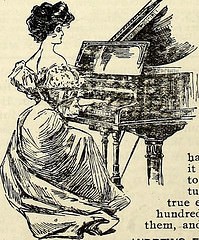What Are WidowandOrphan Stocks
Post on: 28 Апрель, 2015 No Comment

Oct 2011 03
What Are Widow-and-Orphan Stocks?
One term that you may have heard but are not familiar with is widow-and-orphan stocks. A widow-and-orphan stock is a stock that allows a person to take very little risk and pays out rather high dividends.
These stocks were at one time considered one of the safest stock options available. A stock usually gains this title for being associated with a company that has had long term success at remaining profitable no matter the current condition of the market.
Historically, the companies that sold these shares of stock held monopolies on certain markets. In other cases, they may have provided goods and services that the demand for never changed regardless of what was happening in the rest of the economy. In other words, these products or services were absolutely essential.
One example of a company that could be considered as having widow-and-orphan stock is a utility company. Such a company can achieve this status due to the fact that a particular area typically only has one choice for power. This will usually either be an electric company or a company that supplies natural gas.
The fact that demand is absolutely consistent can give such a company’s stock the expectation that it will perform extremely well even when other stocks are hammered by poor economic conditions.
Today, most of the companies that do have the reputation of having widow-and-orphan stock are typically large corporations that have virtual monopolies on certain markets. This is despite the fact that monopolies were supposed to have been illegalized by financial reform and new business regulations.
Whatever the case, a company with such a reputation has obtained a position in which competition is either non-existent or minimal. This can result in stock that consistently delivers great dividends and has a customer base that grows with population trends. Such stocks are of course highly valuable to any investor or stock trader.
However, there are still certain risks that widow-and-orphan companies face. They could at some point lose their status as virtual monopolies. This has indeed happened in the past.
One good example is the telecommunications industry. Prior to the 1980’s, the entire industry was owned by a hand full of entities. However, government deregulation resulted in the sudden creation of many competitors. What once was an industry ruled by monopolies irrevocably changed in a matter of months. This resulted in the stock of a number of companies losing their widow-and-orphan status.














